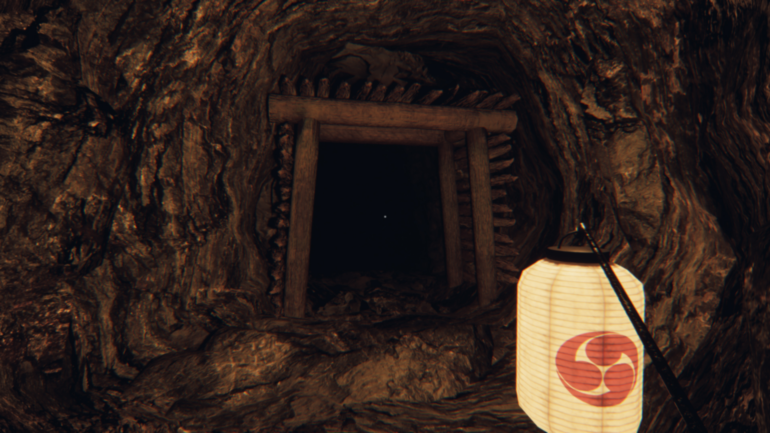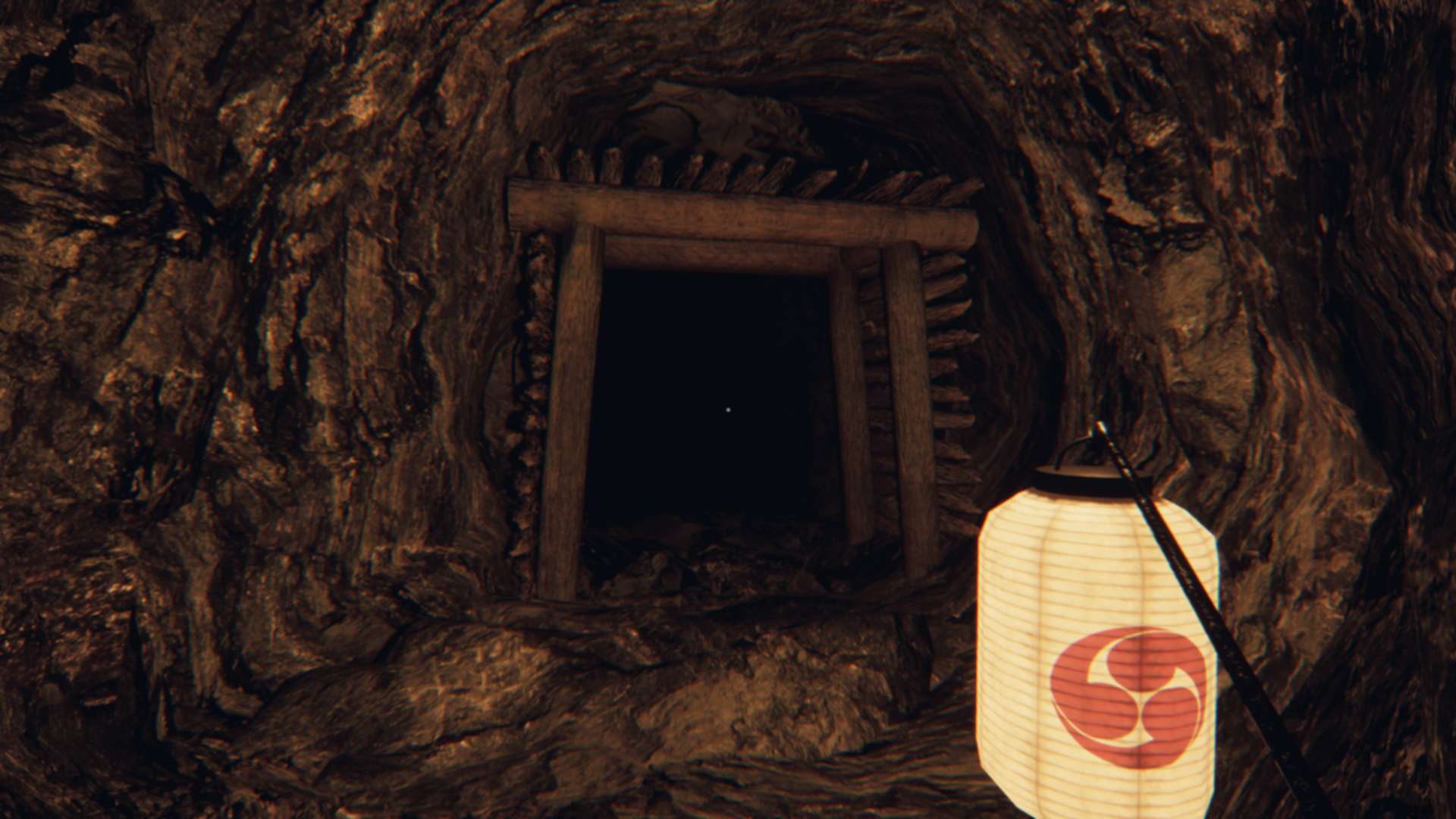Barcelona-based developer Endflame’s first project, Ikai, is not a bad horror experience but similar to the recent Martha is Dead settles, a middling horror release. It borrows the game-feel of Fractional games, builds a unique tone and atmosphere, and mixes in the excellent maze-like level design of a Japanese shrine. Still, unfortunately, it’s undercut by some subpar presentation, an awkward gimmick mechanic, and a rushed and unfinished feel.
You play as the priestess Naoko, left to take care of the shrine after the priest headed off to a nearby village to investigate some mysterious rumors and ill omens. After some brief chores, you realize that the priest was too late, and an angry spirit with an entourage of yokai has invaded the shrine. Naoko must exorcise the yokai and find and seal the outbreak’s source.
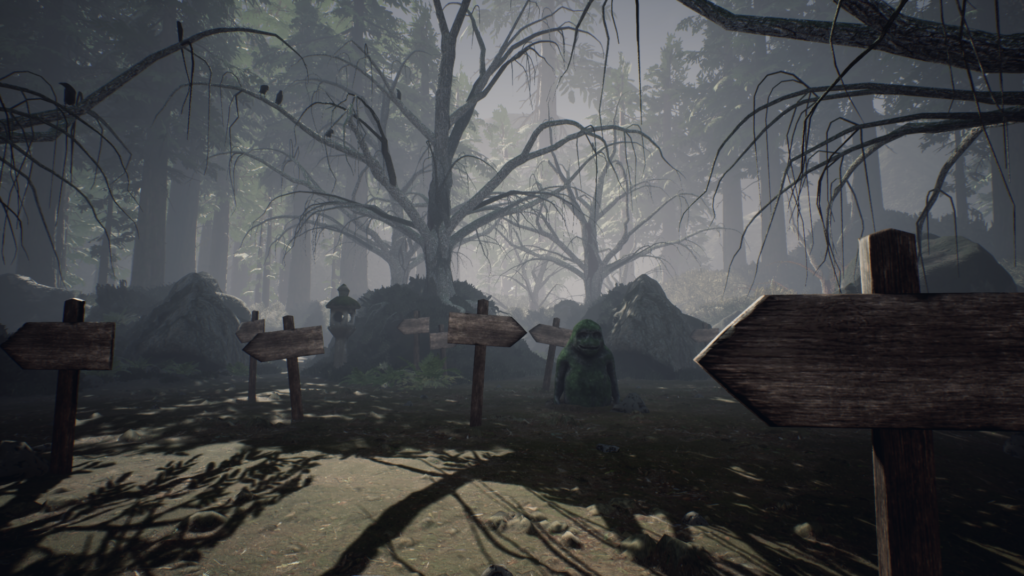
“Don’t subject yourself to the grating English voice-overs.”
The game has some interesting twists over its two to four-hour runtime and even stops to develop Naoko’s character here and there. Ikai details her path to religious life as an escape from arranged marriages. It also somewhat avoids the typical trope of the apathetic protagonist. Her comparative nonchalance toward the horrific spirits makes sense, given her closeness to the priesthood and experience and extensive knowledge of yokai.
Although, I must stop here to urge readers, please, if you play this game, don’t subject yourself to the grating English voice-overs. Naoko narrates frequently, and even though the Japanese voice-over isn’t noteworthy, it’s far less distracting than the English. The voice-over also provides a more authentic feel to the game, and it’s always great to see games offer the options like this. The Italian voice-over in Martha is Dead or the German voice-over in Munduan come to mind. The language helps make the whole experience feel more cohesive even though it’s not developed by a Japanese team.
“Drawing with a mouse or controller is extremely finicky and imprecise”
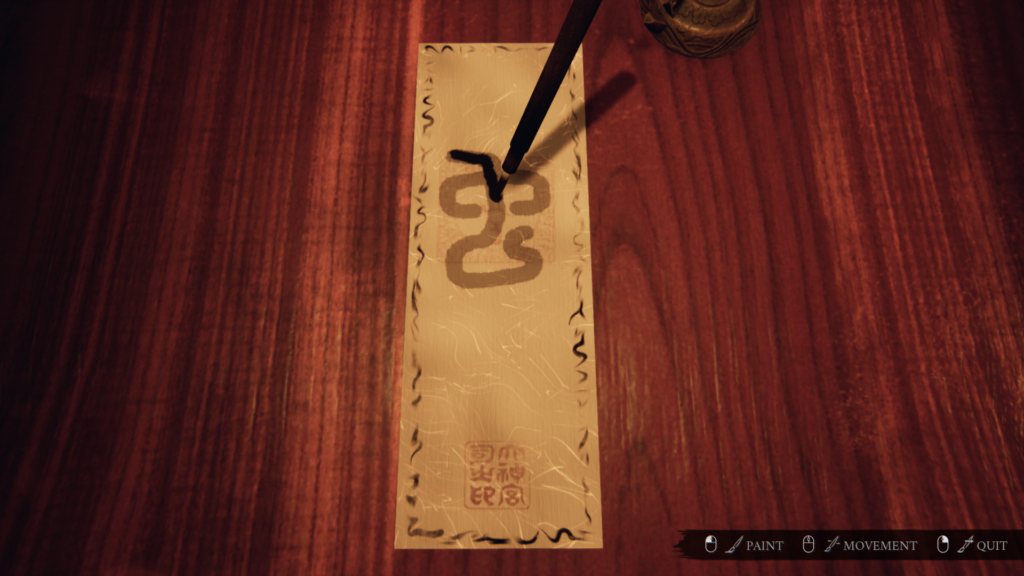
Ikai, like other non-combat horror games, features stealth sections, puzzles, and chase segments. Yokai never stalk you during exploration, but more dynamic scares are reserved for the game’s calling card mechanic; The need to seal off objects yokai have infested.
These sections require you to run between tables and draw out talismans without being caught by the yokai. Stick around retrying a symbol or character for too long, and they’ll grab you with a laughable FNAF-like jumpscare, and you have to try again. This was the worst part of the game. Drawing with a mouse or controller is extremely finicky and imprecise, and the characters are complicated with strict requirements. These moments sucked tension out of the game and ended up being a slog with some seals taking me 10 to 20 tries to complete. They were further undercut by cheesy jump scares on failure, revealing some of the monsters to be ugly and low-effort models.
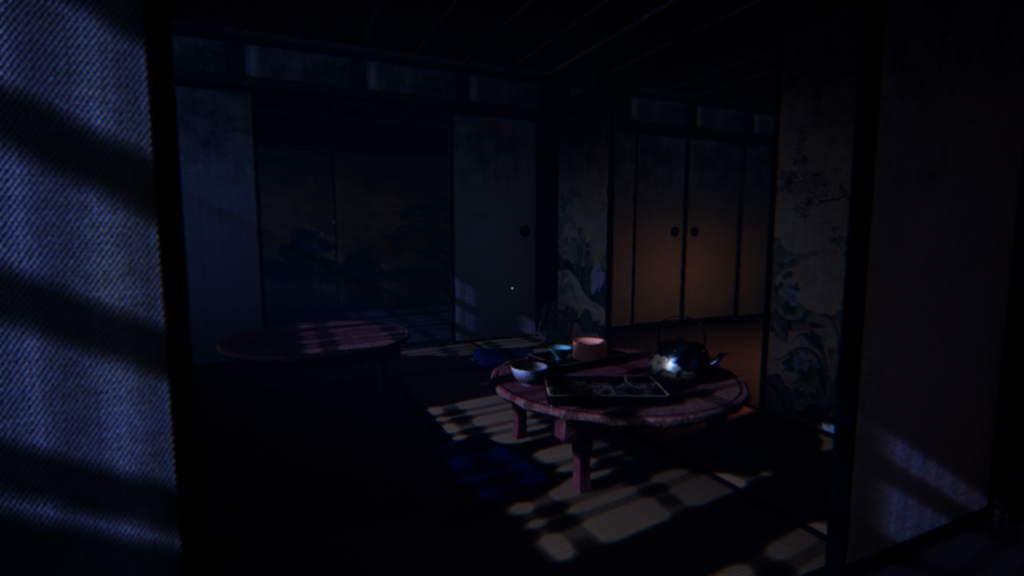
“The level design itself becomes Ikai’s best monster.”
In theory, the mechanic is an excellent idea to build tension. However, in practice, it felt like a cheap imitation of the line game videos. Although, there were some rare instances where it worked well. For instance, at one point, you have to seal off a room to end a chase sequence. The shape was easy enough to draw and with more than enough room for error, leading to a tense rush to draw out the character and a satisfying resolve to the chase sequence. Luckily, this mechanic is used sparingly, allowing the better aspects of the game to shine through.
What stands out the most in Ikai isn’t the monsters or the melancholic woods; it’s the shrine itself. It feels organic and lived in, yet it’s also confusing in the best way. Corridors and paths weave between its various rooms, allowing the world to feel hostile and vast without extending off into endless dreamlike corridors. The level design itself becomes Ikai’s best monster. Even when you learn its layout, it easily shifts into and out of liminal spaces, never feeling out of place. The manual mouse-driven approach to opening doors intensifies this tension of exploration, and it means that discovering where sounds and creaks are coming from is increasingly difficult. Are they in a room behind you? Is it tucked behind some sliding doors? Can it even reach you? Or is it right behind you?
This constant feeling of the unknown in the shire is excellently cultivated throughout the experience. I especially enjoyed how interconnected the shrine is with its surrounding woods and caves, mirroring an almost Metroidvania-like progression.
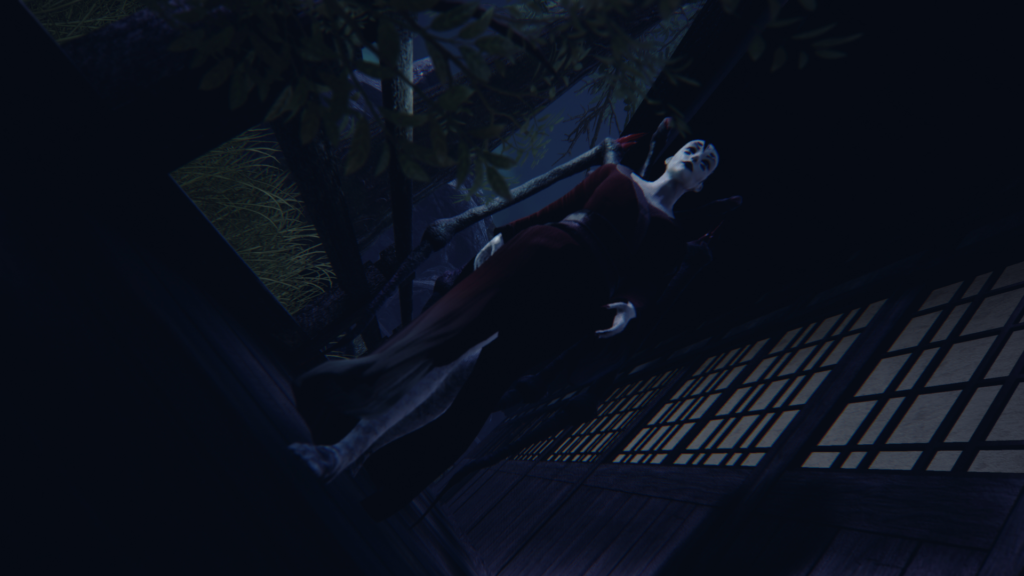
“Even with limitations, the sound design is still impressive.”
Unfortunately, while the photorealistic backgrounds look excellent at first, muddy textures and rough-looking objects take away from the presentation. The creature’s models suffer the most in Ikai as the rushed, uninteresting design is shown too often with lackluster animation and uninspiring looks. Some sounds also suffer from a lack of budget, time, and people, with compressed audio, forgettable music, and dull stock sounds that took me out of the experience.
But, even with these limitations, the overall sound design is still impressive. Many genuinely chilling soundscapes and a unique palette of effects work well together, even if they fall short due to their quality or ubiquity.
“I wouldn’t recommend Ikai to everyone.”
Despite these issues, there’s a strong core to Ikai. Even with what I’ve outlined, along with a rushed exorcism near the end, Ikai still feels unique. Not just for its setting but also its level design and game feel, translating the awkwardness of tank controls to the first person in a great imitation of Fractional’s game feel.
I wouldn’t recommend Ikai to everyone, but it is not a bad option for horror fans looking for a recent thrill. It doesn’t bring a lot of new ideas, and something concepts could have been better executed, but with a forgiving checkpoint system and a great haunted house to explore, makes Ikai a decent way to spend a foggy night alone.






